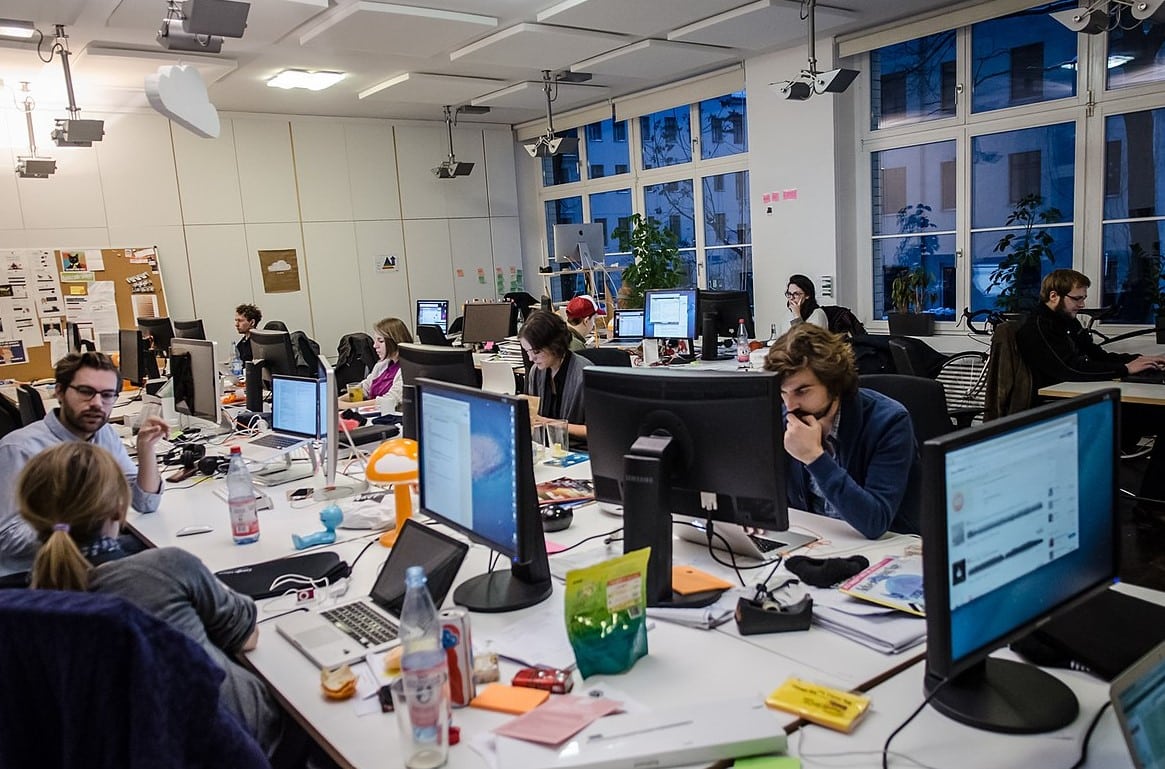National strategy will aim to increase foreign direct investment in key sectors
A deterioration of Cyprus’ business climate in the services sector further impacted the economic climate in May, with the Economic Sentiment Indicator (ESI) decreasing by 1.8 points compared to April, according to the University of Cyprus’ Economic Research Centre (CypERC).
At the same time, the Economic Uncertainty Indicator declined in May due to reduced uncertainty across all sectors except for manufacturing.
“The uncertainty among consumers has increased, although it still remains at a relatively low level,” noted the Economic Research Centre.
Specifically, according to the ERC, which compiles the ESI, the decline in Cyprus’ services sector climate stemmed from the worsening current business environment, despite the improved expectations for business activity.
The ERC added that the further deterioration of the financial activities sector significantly contributed to the decline in the services sector climate, reflecting the effects of monetary tightening in the eurozone through lower domestic loan demand and stricter lending criteria.
Moreover, the retail trade climate, as reported by the ERC, experienced a slight increase mainly due to upward revisions in sales expectations for the next quarter.
The ERC also stated that the slight improvement in the construction sector climate was driven by more favourable assessments of ongoing projects.
What is more, in the manufacturing sector, the strengthened climate resulted from improvements in the current business environment, including orders, finished goods and inventory levels, combined with upward revisions in production expectations for the next quarter.
Furthermore, regarding Cyprus’ consumer climate in May, the research centre reported a marginal decline.
Compared to April, consumers’ responses regarding their households’ recent and future economic situations were more negative, while their expectations for the country’s future economic situation were less optimistic.
The report went on to say that the weakened economic and business climate raises concerns about the overall economic recovery and the challenges faced by the services sector in Cyprus.
The impact of the ongoing financial sector issues and the uncertain consumer sentiment pose challenges for businesses operating in the country.
Efforts to address these issues and restore confidence in the services sector are crucial for sustaining economic growth. Policy measures that promote stability, investment, and consumer spending will play a vital role in revitalizing the business climate and driving economic recovery.
The University of Cyprus ERC explained that it continues to monitor economic indicators and assess the evolving economic landscape.
It will provide further insights into the economic climate and potential policy implications to support informed decision-making and promote a resilient and prosperous economy in Cyprus.
Foreign investment remains a source of growth for Cyprus
Meanwhile, Evgenios Evgeniou, the president of Invest Cyprus, the country’s national investment promotion agency, on Friday stated that the arrival of foreign companies to the island, especially in the technology sector, has played a key part in achieving the highest growth rate among EU countries in 2022.
Evgeniou’s comments were made during this speech at a professional services and investment conference, organised by the FMW Financial Media Way, in Nicosia.
Moreover, Evgeniou said that Cyprus was ranked third globally, in terms of recovery in attracting foreign investment, both post-pandemic and in 2022.
Cyprus rose 50 places in this regard, climbing from number 68 to number 18 globally, in terms of attracting foreign investment, based on the Greenfield FDI index.
Referring to the priority areas of Invest Cyprus, Evgeniou said that the first one is companies with sectoral expertise and specialised talent, where Cyprus has managed to create an ecosystem of technology firms, with approximately 400 such companies, employing 25,000 employees.
In addition, he stated that based on a recent study by advisory firm EY, the contribution of this sector to Cyprus’ GDP of Cyprus is €3 billion, which accounts for more than 10 per cent of the country’s entire GDP.
He added that the national strategy on this particular matter has delivered results, while the objective now is to expand into biotechnology and biomedical companies, where Cyprus has scientists able to fill such positions.
He also said that the second priority is investment in areas such as green energy, digital infrastructure, tourism, education and health.
A third area, he mentioned, is that of regulated companies, where Cyprus has achieved noticeable progress in recent years.
He also emphasised the need for Cyprus to be particularly attentive to the quality rather than the quantity of the companies it attracts.
Finally, regarding the issue of sanctions, Evgeniou said that it is important for them to be managed in such a way that it becomes an opportunity for Cyprus to improve its name and international reputation.







Click here to change your cookie preferences